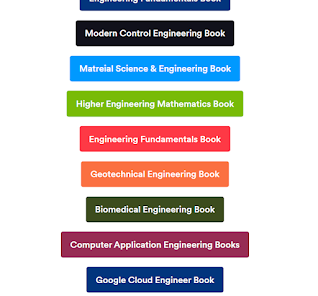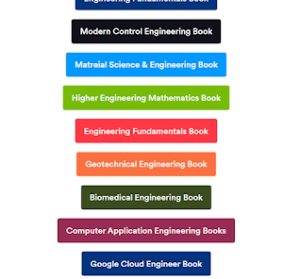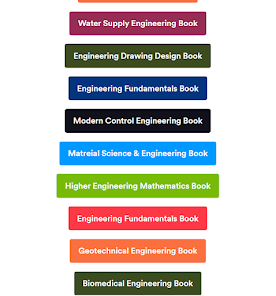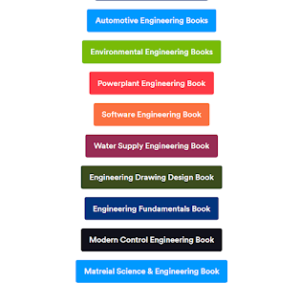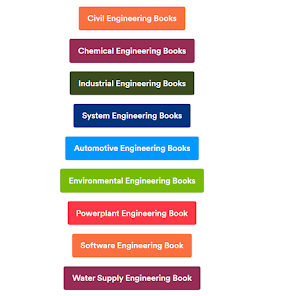Engineering is the application of scientific and mathematical principles to design, develop, and build new technologies, products, and systems that improve society’s quality of life. It is a field that covers a wide range of disciplines and specialties, including mechanical, electrical, civil, chemical, aerospace, industrial, and environmental engineering, among others.
This app provides books on
Engineering design
CAD (Computer-Aided Design)
FEA (Finite Element Analysis)
3D modeling
Materials science
Manufacturing processes
Robotics
Automation
Control systems
Mechatronics
Thermodynamics
Fluid mechanics
Structural analysis
Electromechanical systems
Electrical engineering
Electronic engineering
Aerospace engineering
Civil engineering
Environmental engineering
Geotechnical engineering
Chemical engineering
Industrial engineering
Biomedical engineering
Nanotechnology
Renewable energy
Power systems
Machine learning
Artificial intelligence
Cybersecurity
Innovation
Audio Engineering
Engineering Surveying
Engineering Fundamentals
Machine Drawing
Mathematics of Physics and Engineering
Mechanical Engineering Principles
Modern Control Engineering
Engineering Rock Mechanics
Object Oriented Software Engineering
Reverse Engineering for Beginners
Computer Aided Engineering Design
Here are some common engineering terms that are frequently used in the field:
Engineering: The application of scientific and mathematical principles to design, develop, and improve structures, machines, systems, and processes.
Design: The process of creating plans or specifications for a product, system, or process.
Prototype: A preliminary model or version of a product or system that is used to test and evaluate its design and functionality.
CAD: Computer-aided design; software that is used to create 2D and 3D models of products and systems.
CAM: Computer-aided manufacturing; software that is used to control and automate the manufacturing process.
Simulation: The use of computer models or other techniques to predict the behavior of a system under various conditions.
Materials science: The study of the properties and behavior of materials, including metals, polymers, ceramics, and composites.
Mechanics: The study of motion, forces, and energy in physical systems.
Thermodynamics: The study of heat and temperature and their relation to energy and work.
Electrical engineering: The branch of engineering that deals with the design and development of electrical systems and devices.
Mechanical engineering: The branch of engineering that deals with the design and development of mechanical systems and devices.
Civil engineering: The branch of engineering that deals with the design and development of infrastructure, including buildings, bridges, roads, and water systems.
Aerospace engineering: The branch of engineering that deals with the design and development of aircraft and spacecraft.
Chemical engineering: The branch of engineering that deals with the design and development of chemical processes and systems.
Industrial engineering: The branch of engineering that deals with the optimization of complex systems and processes.
Robotics: The design, construction, and operation of robots.
Automation: The use of technology to control and monitor processes and systems automatically.
Control engineering: The study of how to design and implement control systems to manage and regulate physical processes.
System engineering: The discipline of engineering that focuses on designing and managing complex systems.
Renewable energy: Energy that is generated from renewable sources, such as solar, wind, and hydro power.
App Specs
- For ANDROID
- Update December 16, 2022
- Version 10.2
- Android 4.4
- Developers Tech Expedia
- Category Education

